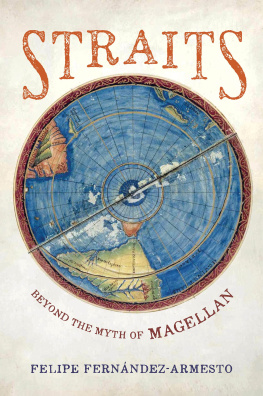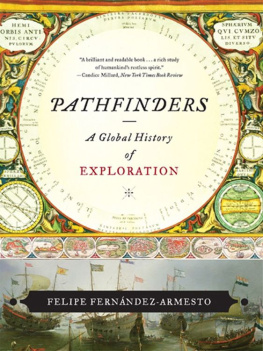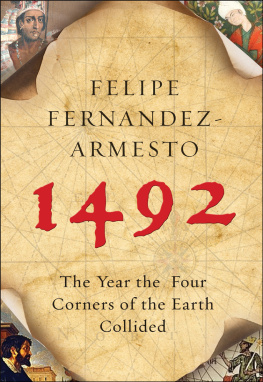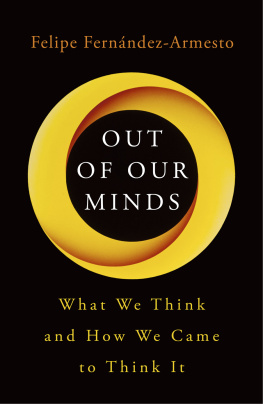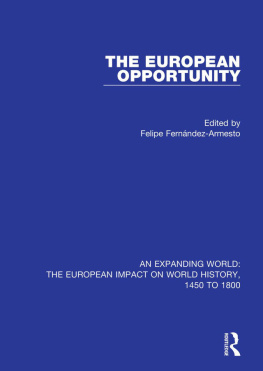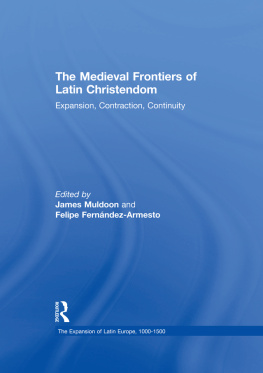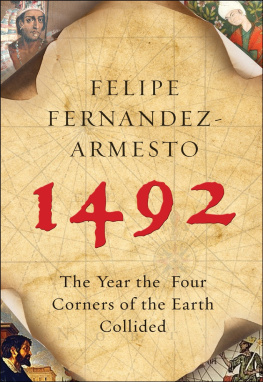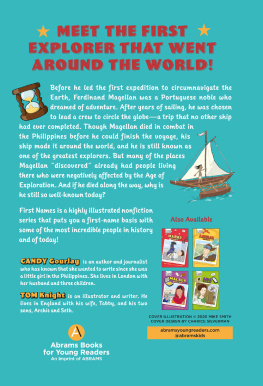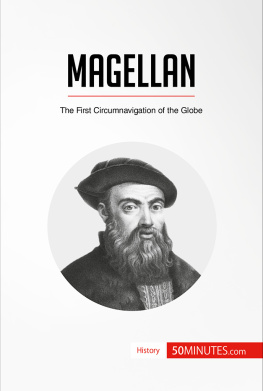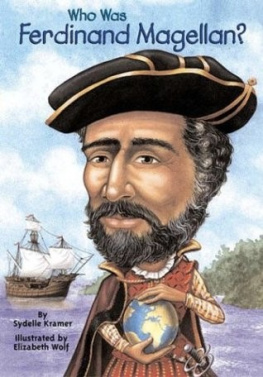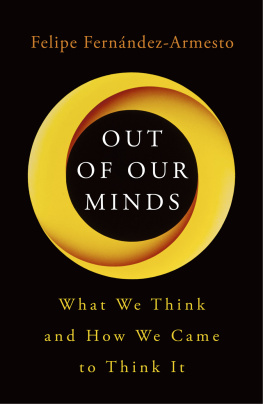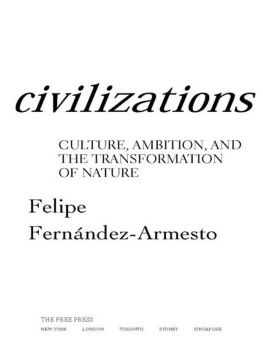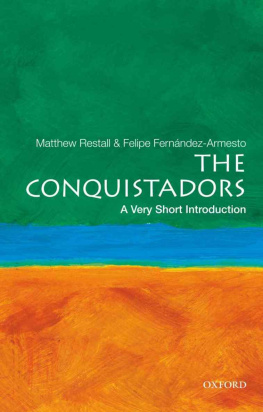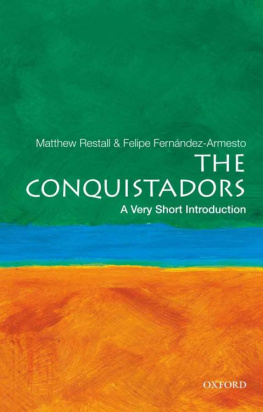Preface
Failure is fatal to happiness but can be fruitful for fame. Metaphorically, resurrections often follow crucifixions. Sometimes partial but spectacular success adds glamor to a downfall, like Alexanders or Napoleons. Magellan is exceptional because his failure was total. Yet his renown seems impregnable.
Portuguese, among whom he was born, and Spaniards, to whom he belonged by naturalization, compete to ascribe him as kindred. His claims to a literally global role transcend nationalisms. Various countries vie to commemorate the quincentenary of his death. His nameto judge from its popularity with PR professionalsconfers instant approval, triggering connotations with science, enterprise, and achievement. It dignifies, at least in aspiration, an expensive cruise ship, a costly private health care business, and firms dedicated to financial management and aerospace engineering. NASAs mission to Venus was named after Magellan. Other, even odder uses or abuses of his name for profitin varying degrees of ignorance and irrelevanceare mentioned in this books conclusion (p. 278). To judge from the numbers of businesses and projects called Magellan, he makes an appealing figurehead.
The tally of his failures is almost as long as the list of his honorific homonyms. On the voyage for which he is celebrated, most of the ships were lost and all but a handful of his men died or deserted. The cash profit usually ascribed to the outcome is a myth. Magellan did not even reach his nominal destination. In his mission to find a short route from Spain to the Spice Islands, he did more than just fail: he drove on to disaster when failure was already obvious. His ambitions for himselfto conquer a profitable fieffoundered because he made lethal mistakes. He never consideredlet alone accomplishedthe circumnavigation of the world; but common opinion continues to credit him for it. It strikes his admirers as universally significant, like the first wireless broadcast or the first moon landing: a contribution to knowledge and science, rather than an exercise of crude might or material exploitation, like the work of most other dead white explorers.
His intentions were imperial; yet he has escaped, so far, the scattershot of postcolonial revulsion and vengeance. His conduct, though bold and resolute, was as bloody and destructive as that of most would-be conquistadores. But he died without establishing a colony: that was another of his failures. In consequence, unlike Columbus, say, or Corts, he can more or less dodge arraignment for imperialism. Of all the celebrated or formerly celebrated European explorers of the Age of Expansion, Magellan seems the most suitable hero, or least obvious villain, for postcolonial times and politically correct scrutineers.
In many ways, he deserved the esteem he has attracted. Qualities he exhibited in abundance include intrepidity, single-mindedness, resilience in misfortune, and devotion to the noble, chivalric ethos in which he was well educated and well read. He also had, for good and ill, an elusive but unmistakable charisma that inspired loyalty in friends and followers in moments of peril and hardshipof which there were plenty in his career. His life, as we shall see, exemplifies reasons why explorers are celebrated, even when they offend officious and anachronistic demands.
But the people who praise him or try to appropriate his renown do not know who Magellan really was. They ought to think again. The best reasons for commemorating himwhich appear in the pages that followhave been overlooked in favor of falsehoods. And anyone prompted by the worldwide celebrations already under way and due to climax in 2022 may care to discard the myths, penetrate the truth, and learn what the explorers life and times were like.
The sources do not permit the kind of intimate biographies possible for Columbus and Vespucci because Magellan left so little copy in his own words. In the pages that follow, however, I undertake the closest reading ever of the texts that are available. As a result, I think, I can show more of what Magellan was like than any of my predecessors. In particular, I disclose some of the dynamism of his character, as experience changed it; and I discern previously unnoticed influences, which shaped his self-perception and provided models for his life or values to guide his sometimes inscrutable or perplexing behavior. His actions, as far as they can be distinguished among the contradictory narratives, descriptions, and assessments that survive from his day, are evidence of his interactions with the world that surrounded him; so I spend a lot of time on the contextstarting with that of the world in his lifetime, or at least the parts of it in which he lived and fought and explored.
Because so little can be said for certain, and because unwarranted assumptions, myths, assertions, and falsehoods dominate the historical tradition, I try to keep the reader in constant touch with the evidence and to provide matter for dissent when I make a judgment that involves imagination or intuition of my own. I make no apology, however, for wielding imagination disciplined by the evidence and informed by long study of the subject. I first worked on the sources when editing The Times Atlas of World Exploration some thirty years ago. I did not write the sections of that book in which Magellan appears and would not now endorse everything said there. But the experience sparked an interest sustained ever since. The history of exploration has remained a recurrent theme in my work and provides the broad context in which I try to understand what Magellan did and why and to what extent it matters for the world.
In the tradition of prefaces I have to offer some self-exculpation.
In some places, indicated in the text and the critical apparatus, I have extended the normal limits of scholarly convention by turning reported speech into dialogue. I hope fastidious readers will see why, in each case, this break with convention is justified and how it helps to make the evidence vivid and the events more intelligible than they would otherwise be. In chapter 1, in introducing parts of the background, especially to Magellans irruptions into the Indian Ocean and Swahili Coast, I have drawn on pages from a previous book of mine, 1492 . As the present book was largely written during the pandemic of 202021, I had to juggle with spells of isolation and was not always able to get access to the best editions of all texts. In such cases, I cite in the critical apparatus the text I used at the time and the superior version, where available, against which I may subsequently have been able to check it. Except where indicated, translations are my own; but in quoting translations from Antonio Pigafettas narrative of the great voyage, I have relied (except where stated in the notes) on the excellent publication by my colleague Theodore Cachey. He worked from a 1987 edition, by the well-known poet and critic Mariarosa Masoero, of the most authoritative manuscript, which I have not been able to consult; I have checked the translation against the famous edition by Mosto (see below, p. 300) and include cross-references in the notes.

